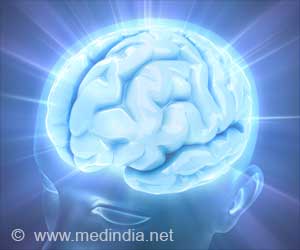Discover the transformative power of yoga in diabetes management with insights from Dr. Indranil Basuray. A holistic approach to a healthier life.
- Dr. Basuray challenges the asana misconception, revealing yoga as a comprehensive lifestyle for diabetes care
- Dietary modifications, mindful practices, and reducing medications through yoga offer a holistic approach //
- Emphasizing neuroplasticity, Dr. Basuray highlights the brain's role, advocating for a paradigm shift in diabetes management
Yoga Beyond Asanas
Dr. Basuray emphasized that diabetes is a lifestyle disorder, requiring a holistic approach beyond conventional medicine. Contrary to the common misconception that yoga is limited to physical postures (asanas), he explained that only 5% of yoga involves asanas, while the remaining 95% comprises other techniques such as breathing exercises, meditation, and mindfulness. He stressed the importance of understanding and incorporating the entire spectrum of yoga, including ethical and moral principles (Yama and Niyama).The Role of Asanas in Diabetes Management:
While acknowledging the misconception that yoga equals asanas, Dr. Basuray highlighted the multifaceted nature of diabetes care. He explained that diabetes not only requires physical exercises like asanas but also incorporates breathing techniques, mindfulness, and meditation. These practices induce neuroplasticity, positively influencing the brain and mitigating the impact of stress, anxiety, and depression on diabetes.
Surya Namaskar: A Powerful Asana for Diabetes:
When asked about specific asanas, Dr. Basuray pointed out that Surya Namaskar (Sun Salutation) stands out as a powerful posture beneficial for diabetes management. However, he reiterated that focusing solely on individual asanas is a misconception, as the holistic practice of yoga is essential for optimal results.
Importance of Mindfulness and Meditation:
Addressing the importance of mindfulness and meditation in diabetes management, Dr. Basuray highlighted their role in reducing stress—a significant risk factor for heart disease and diabetes. He explained that these practices induce neuroplasticity, positively influencing the brain, and contribute to overall well-being and blood sugar control.
Dietary Modifications for Diabetes
Dr. Basuray stressed the significance of dietary modifications for individuals with diabetes. Recommending five to six small meals a day, he advised against the traditional Indian eating pattern of heavy dinners. He emphasized the importance of enjoying meals, incorporating salads, and opting for smaller, well-planned meals with fewer carbohydrates. Moderation was key, allowing individuals to enjoy a variety of foods without compromising their health.Addressing Concerns About Diabetes Medications
Discussing potential side effects of diabetes medications, Dr. Basuray underscored the idea that every drug is, in essence, a poison. He emphasized that medications are crucial initially, allowing time for individuals to make lifestyle changes. His approach encourages gradually reducing or eliminating medications as lifestyle modifications take effect.Dr. Basuray highlighted numerous success stories where individuals effectively controlled diabetes through yoga and lifestyle changes. He pointed out that scientific research, including the world's first book authored by physicians worldwide, provides substantial evidence supporting the efficacy of yoga in diabetes management. The emphasis is on changing the mindset and incorporating yoga into daily life.
A Sweet Message for the Diabetics Out There
Dr. Basuray concluded with a powerful message on World Diabetes Day, urging individuals to recognize the extraordinary capabilities of their bodies. Drawing a parallel with the rapid advancements in technology, he emphasized the need to learn the "manual" of the human body—yoga. By understanding how to live, eat, and practice mindfulness, individuals can lead healthy, happy lives without relying solely on medications.In conclusion, Dr. Indranil Basuray's insights offer a transformative perspective on diabetes management, urging individuals to embrace the holistic principles of yoga for a healthier and more fulfilling life.
Source-Medindia













